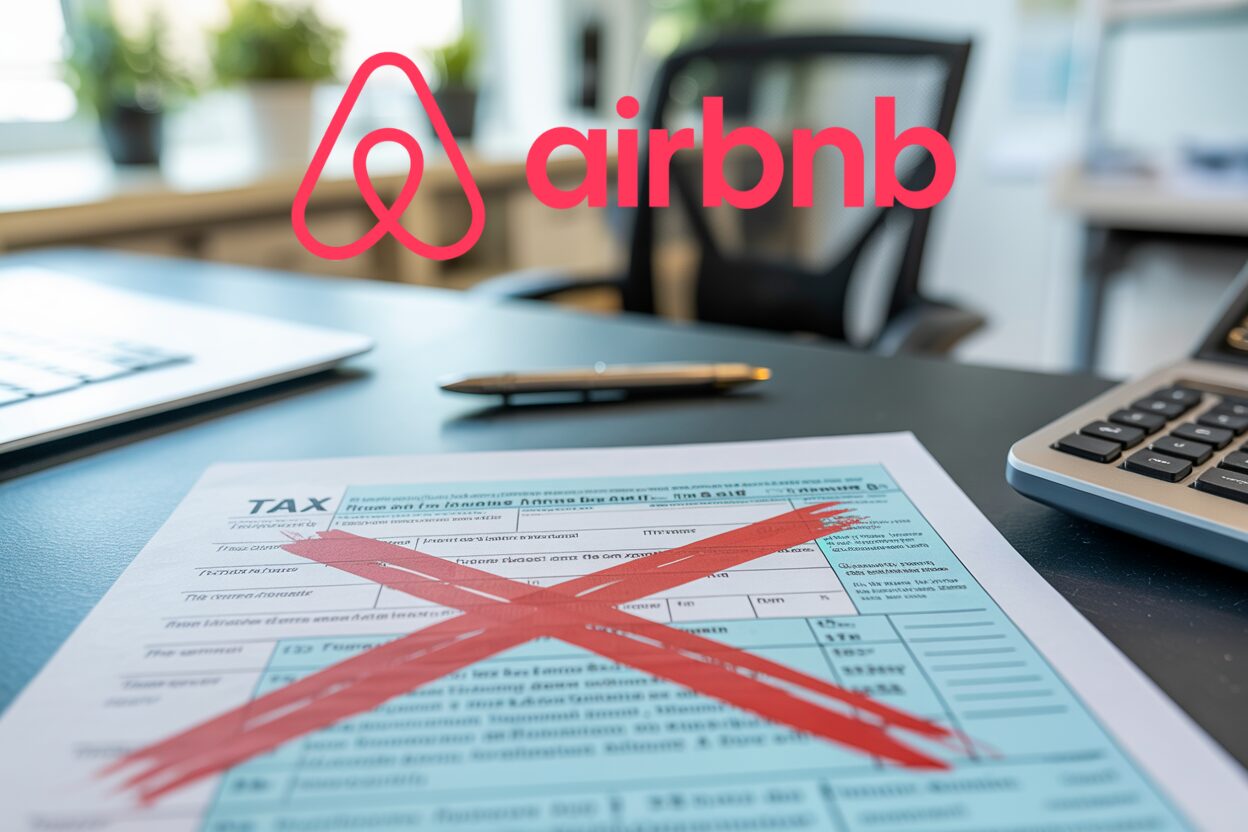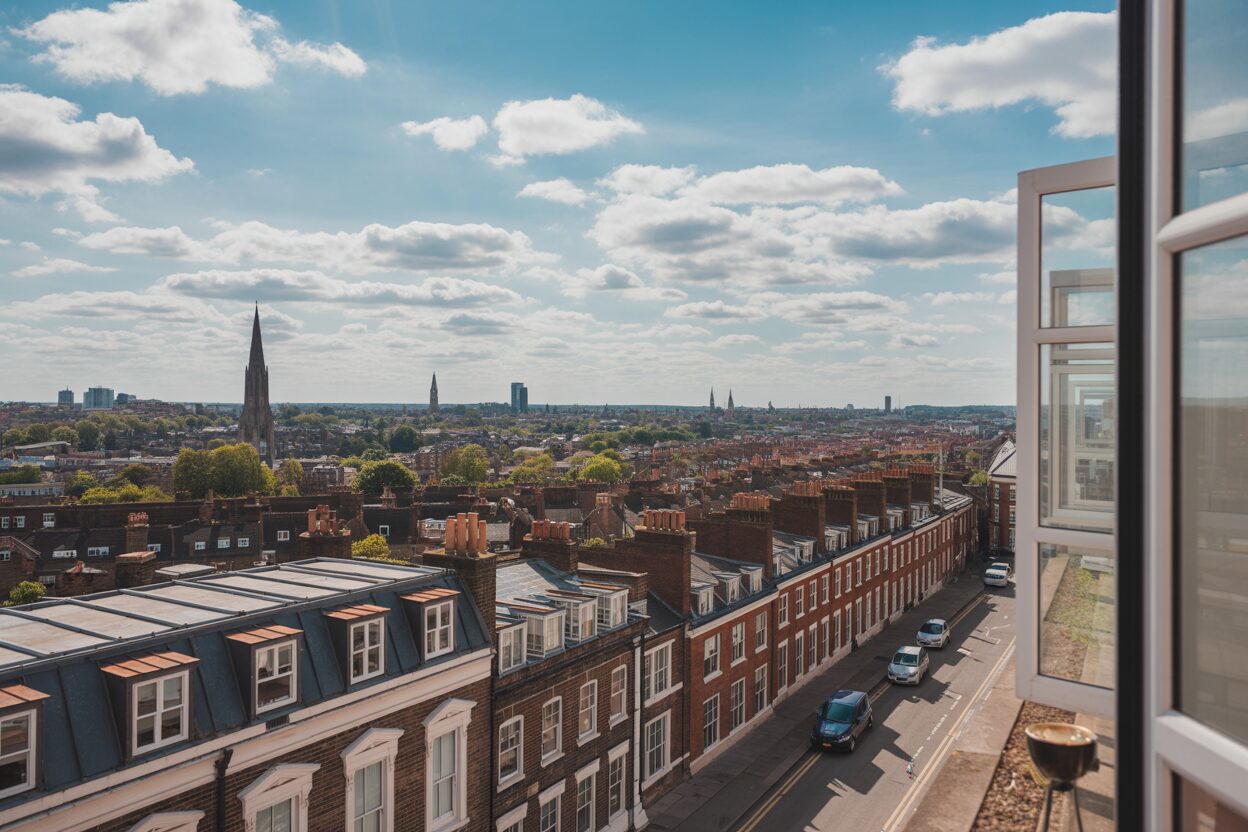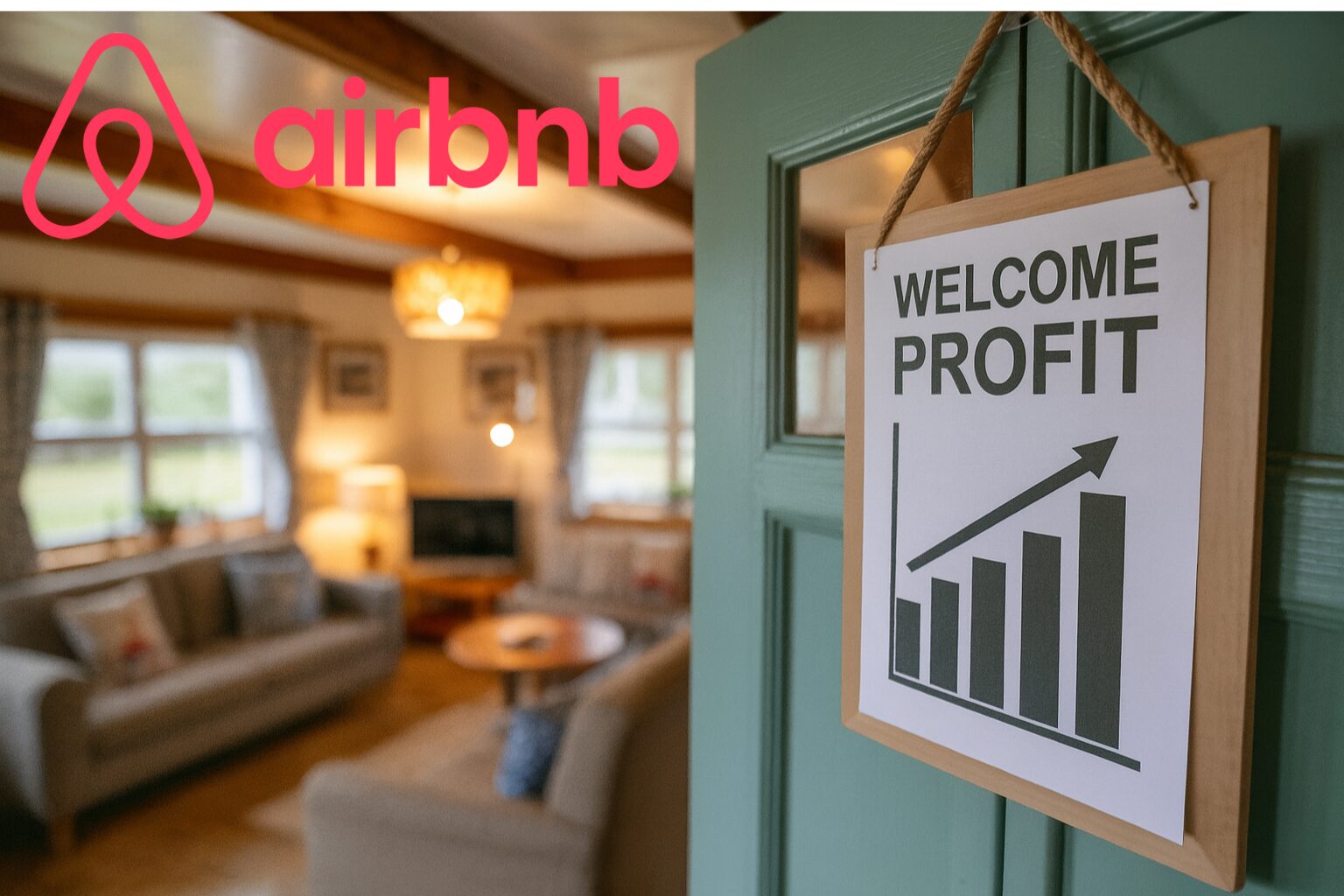
There are nearly half a million short-term let properties in the UK. With Airbnb yields often higher than other property investments, they’re attracting attention from developers, landlords and portfolio builders
But, as with other types of entrepreneurial property ownership, the UK government sees serviced accommodation like holiday lets as an easy target for raising more tax. No-one can show you how to avoid paying tax on Airbnb income, there are ways you can reduce your tax obligations.
In this article, find out the different forms of tax you’ll incur buying, owning and selling an Airbnb holiday-let. Discover the different tax regime private and limited companies operate under. And learn why it’s best to decide on one business structure and stick with it from the start to reduce the tax you pay.
Buying an Airbnb property: Stamp Duty Land Tax
Individuals and limited companies must pay stamp duty on property they buy. The applicable tax is the SDLT in England and Northern Ireland, LBTT in Scotland and LTT in Wales. In all four countries, personal and corporate landlords pay more to buy a holiday-let property than people buying property as their primary residence.
England and Northern Ireland
In England and Northern Ireland, buying an additional property attracts an extra five percentage points on top of the standard Stamp Duty Land Tax (SLDT) bands. Non-UK residents and corporations pay a further two percentage points on top.
| Effective rate (resident) | Effective rate (non-UK) | |
| £0–£125,000 | 5% | 7% |
| £125,001–£250,000 | 7% | 9% |
| £250,001–£925,000 | 10% | 12% |
| £925,001–£1.5m | 15% | 17% |
| £1.5m+ | 17% | 19% |
Certain types of company may have to pay 17% on residential properties over £500,000. There are reliefs some firms like letting agencies can apply for to get relief. You should take advice on this.
Scotland
In Scotland, you pay Land and Buildings Transaction Tax (LBTT) at the main band levels. Then you pay Additional Dwelling Supplement (ADS) at 8% on purchase of £40,000 or more.
| Effective rate (LBTT + ADS) | |
| Up to and including £39,999 | 0% |
| £40,000–£145,000 | 8% |
| £145,001–£250,000 | 10% |
| £250,001–£325,000 | 13% |
| £325,001–£750,000 | 18% |
| £750,001+ | 20% |
H3: Wales
In Wales, you pay Land Transaction Tax (LTT) at the following banded rates:
| Rate | |
| £0–£180,000 | 5% |
| £180,001–£250,000 | 8.5% |
| £250,001–£400,000 | 10% |
| £400,001–£750,000 | 12.5% |
| £750,001–£1,500,000 | 15% |
| £1,500,001+ | 17% |
Note: Different stamp duty rules apply to mixed-use and commercial properties.
Airbnb tax strategy for landlords: private landlords
Personally owning your Airbnb is often simpler for administrative purposes but can lead to you paying higher tax.
There are allowances and reliefs you can use to bring your bill down. However, Higher and Additional rate taxpayers, unlike Basic rate taxpayers, can’t fully deduct finance-related costs like mortgage interest from their profits.
Airbnb profits count towards your income as an individual that you pay personal Income Tax on it. Rental profits aren’t (yet) subject to National Insurance.
Income tax and Airbnb profits
HMRC taxes Airbnb income at your marginal income tax rate. Basic rate taxpayers pay 20%, Higher rate taxpayers 40% and Additional rate payers 45%.
Here are some important points to consider:
- Marginal tax bands: If your Airbnb income pushes your total earnings to a higher marginal rate, then HMRC only taxes the part above the threshold at the higher rate.
For example, if you earn £48,000, you’re on the Basic rate. But if your Airbnb profits are £5,000, that takes your total earnings to £53,000, meaning you pass the £50,271 Higher rate threshold. You’ll pay the first £2,271 at 20% and the remaining £2,729 at 40%. - Personal Allowance taper: Your Personal Allowance drops by £1 for every £2 you earn over £100,000. So, if your taxable income is £95,000 and Airbnb profits are £10,000, that puts your earnings £5,000 above the £100,000 threshold. That means your Personal Allowance will fall by £2,500.
- Self Assessment: You must contact HMRC if your gross property income is between £1,000 and £2,500. You must file a Self Assessment tax return if your income is over £2,500 after expenses, or over £10,000 before expenses.
Note: If you’re new to Self Assessment, register by 5 October following the UK tax year and file online by 31 January.
How to calculate your taxable profit on Airbnb rentals
Your taxable profit is your total rental income after deducting allowable expenses. You can carry forward losses against future profits as long as it relates to the same property business.
The two types of allowable expenses are:
- Option one is to choose the Property Income Allowance. This allows you to claim a £1,000 tax-free deduction from your gross rental income. If you claim this, you can’t also deduct expenses. For example, if your gross receipts are £10,000 and you claim the allowance, your taxable amount is £9,000.
- Option two is to claim expenses allowed by HMRC that you incurred for your Airbnb rental business. Create an itemised list of the following:
- Booking platform fees
- Landlord insurance
- Cleaning
- Maintenance
- Repairs (not improvements)
- Council Tax and utility bills (if you pay instead of your guests)
- Replacing domestic items like beds, sofas and appliances in furnished properties (not fit-outs or upgrades)
- Your own private use (for example, reduce the costs you’re claiming by 10% if you use the property 10% of the year)
If you only incur minimal expenses in a year, the allowance might be better. If you spent a lot, claiming expenses might save you more money. Check with an accountant to get clarification on your situation.
Mortgage expenses, Section 24 and holiday-let properties
You can no longer deduct mortgage interest payments and other finance costs to reduce your profits and tax liability. Instead, you receive a form of mortgage interest tax relief: a credit equivalent to 20% of the costs. If the tax on your property profits is too low in one year, you can carry forward the unused relief.
First, calculate your rental profit before deducting mortgage interest. Then, work out the Income Tax (at 20%, 40% or 45%) based on that figure. Next, subtract the tax credit which is 20% of your mortgage interest. Any unused finance costs carry forward under HMRC’s rules.
For example, on a property that your guest pays you £20,000 a year in rent for with £5,000 mortgage costs and £4,000 in allowable costs:
- At the 20% Basic rate, your tax before the credit is £3,200, £2,200 after the credit
- At the 40% Higher rate, your tax before the credit is £6,400, £5,400 after the credit
- At the 45% Additional rate, your tax before the credit is £7,200, £6,200 after the credit
Your record-keeping duties
HMRC expects you to keep all documents relating to property income and expenses for at least five years after the 31 January filing deadline for that tax year. So, keep hold of invoices receipts, bank statements and booking records to back up what’s on your tax returns.
Making Tax Digital and private Airbnb landlords
Making Tax Digital for Income Tax begins for landlords whose qualifying income is over £50,000 from 6 April 2026. For those with over £30,000, the regime starts on 6 April 2027. From these dates on, you need to keep digital records of your property-related income and expenses and send updates every three months to HMRC.
Airbnb tax strategy for landlords: limited companies
Holding your Airbnb property in a limited company can be more tax-efficient in some situations. You can usually deduct 100% of the mortgage interest as a business expense, meaning your taxable profits are lower.
But whereas you only pay income tax as a private landlord, you pay tax twice through a limited company: Corporation Tax on profit and then personal tax when you take out the money.
Note: Whether you can fully deduct mortgage interest is subject to the Corporate Interest Restriction. This only matters if your group’s net interest is £2m a year or more – very rare for smaller corporate landlords.
Corporation tax
Companies pay Corporation Tax on their profits during an accounting period. To work out the annual profits on property rental as a limited company:
- Start with rental profit: This is the rent you took in minus running costs you incurred. This could include cleaning, insurance, agent fees, routine repairs and maintenance. If you pay the utilities, you can subtract those too.
- Add back depreciation: These are write-downs in the value of the property’s furniture, white goods, boilers and fixtures.
- Add back disallowed parts: This is the capital part of loan repayments – not the interest. You can’t claim back capital costs. It also includes any private-use share of costs, like costs involved when you block out a property for your own stays.
- Capital allowances: This is generally not available for items inside your Airbnb property. You might be able to claim, for example, if you put a lift or communal fire alarm into a property block containing holiday lets but check with an accountant before claiming.
What you’re left with now is your taxable profit. Companies only pay Corporation Tax if they make profit as a whole. So, if your holiday-let property made a profit but overall your company lost money, relief may reduce or eliminate the bill under corporation loss-relief rules.
The main Corporation Tax rate is 25% on profits above £25,000. There is a small profits rate at 19% for profit up to £50,000. Between those figures, you pay 25% but can claim marginal relief.
Paying yourself
Once you’ve paid Corporation Tax, you can distribute profits to yourself and other company shareholders. You get an annual dividend allowance of £500 in 2025/26, and the tax on all dividends, at all thresholds, is lower than the equivalent rate of Income Tax. Dividends are also not subject to National Insurance payments.
If you want to draw all profits out, Income Tax as a private landlord can often be lower than what you’d pay in Corporation Tax and tax on salary and dividend payments you make to yourself.
Many investors prefer the limited company model however because you only pay Corporation Tax on retained profits. You can leave money in the business to invest in other properties and avoid triggering personal tax until you actually withdraw the money. This way, you may be able to grow your portfolio much faster.
Selling your Airbnb rental
You’ll notice so far in the piece that we’ve not said you can’t deduct extensions, full new kitchens or bathrooms and reconfigurations to the property as expenses to bring down your profit. That’s because they are capital improvement costs. You can only claim these when you come to sell the property because they increase its value.
Here’s how disposing of your Airbnb property attracts different taxes for private landlords and limited companies.
Selling your Airbnb rental: capital gains tax implications
When you sell a privately-owned rental property, you pay Capital Gains Tax (CGT) on the profit you make. CGT doesn’t apply if the property qualifies for full main-home relief but this almost certainly won’t apply to Airbnb lets.
This is how to calculate your profit:
- Start with the final sale price.
- Subtract the original purchase price, plus any Stamp Duty, legal fees and survey costs.
- Subtract the costs of selling, including your estate agent and legal fees.
- Subtract the cost of work you’ve done that adds value or something new – major improvements like building an extension or adding a new bathroom (not routine maintenance or redecorating). [Related article: Converting A Church To An Airbnb? (Innovative Ideas For A Unique Experience)]
What remains is your profit. The tax is 18% for Basic rate tax payers and 24% on gains above the basic-rate band.
All taxpayers get a tax-free allowance called the Annual Exempt Amount (£3,000 in 2025/26); you only pay CGT on gains above that.
It may be possible to reduce CGT payable if:
- You once genuinely lived in the property as your primary residence.
- You gift a share of the property to your partner before you sell the property to take advantage of your and your partner’s tax-free CGT allowances.
- You offset capital losses from other assets against the gain from your property sale.
Consult with an accountant before attempting to use any of the tax reduction methods.
Selling your Airbnb rental: corporation tax implications
You calculate the profit you make from any sale of an Airbnb property by taking the final sale price and subtracting the purchase price (and any related costs), the costs of major improvements that have added value and your selling costs.
You then pay Corporation Tax on the gain, but only if your company made profit that year as a whole (including the sale of the property). Current-year or carried-forward losses may reduce the charge under corporation loss-relief rules. Companies don’t get a CGT annual exemption like individuals.
Note: If your company bought the property before 2018, ask your accountant to check indexation up to December 2017. This lets you increase the property’s base cost for inflation up to that date, which reduces the taxable gain.
Transferring ownership of Airbnb and holiday-let properties from individuals to limited companies
You can move Airbnb properties from personal to limited company ownership and vice versa. But it is an expensive and complex process because it triggers two tax charges at the same time. You should seek help from an accountant or tax expert before attempting such an action.
The two tax burdens you’ll face are:
- Capital Gains Tax: HMRC will treat the personal sale of a property to your limited company as a “disposal” to a connected person. So, even if you sell it for £1, the CGT you’ll pay will be what you’d have paid if you sold it at market rate. There are very limited reliefs available which you should talk to a tax advisor about.
- Stamp duty charge: When your limited company buys the property, they’ll have to pay the relevant higher rate of stamp duty in all four UK countries.
The size of the tax bill that the “double whammy” of CGT and stamp duty at market value adds up to can make transferring properties financially unviable.
Ask an adviser what options may be open to you under s162 incorporation relief (CGT). This may reduce or defer your CGT charge, but only if you’re transferring a property business as a going concern in exchange for shares and you meet very strict conditions.
When building a property investment strategy, the best advice is to decide on a structure from the outset after seeking professional advice.
HMO Architects: build a holiday accommodation property portfolio with us
By understanding allowable expenses for landlords and choosing the right business structure, you can reduce how much tax you pay on Airbnb profits. But, UK tax laws are complicated and the best advice is to lean on accountants to maximise total income from your investments.
We’re HMO Architects. We’re not accountants but what we can do is help you build your Airbnb business from one property to multiple properties so you grow both your rental earnings and property portfolio.
Here’s a selection of successful projects we’ve delivered to holiday-let clients:
- Anfield Police Station, Liverpool (24 units): We reimagined a late-1800s police station into a 24-bed, en-suite B&B aimed at football-weekend demand, adding a ground-floor café concept and securing planning for a complex historic layout. The scheme moved from a tired 20-bed HMO to a guest-ready asset. Property value climbed from £450,000 to £1.2m and the rent tripled from £7,200pcm to £21,600.
- Maesteg Road, Swansea (7 units): We turned a sloped five-bed into seven serviced-accommodation rooms, each with an en-suite and in-room kitchenette. Our architects also added a smart loft conversion and a lower-ground social zone that worked with the site levels. The property’s value increased from £85,000 to £260,000 with rental income up 614% from £350pcm to £2,500.
- Sandylands, Lancaster (7 units): We rebuilt a six-storey seafront terrace as seven coastal holiday-let apartments. This project was complicated by both flood risk and fire escape route factors but, working with the client and council, we found ways to accommodate those requirements. The result was an uplift in value from £90,000 to £550,000 and the realisation of £66,000 annual rent from the property.
Here’s how we do that step-by-step:
- Investment strategy call: Get tailored advice on how to build and scale your holiday-let property portfolio from Ryan Windsor, co-founder of HMO Architects. Few professionals have Ryan’s experience: he’s worked on over 2,200 projects and built his own extensive property portfolio.
- Find a property: If you see a property you like, book a feasibility call with us. We’ll give you our expert opinion on how viable it is as a holiday let, especially if you need to spend money on refurbishment or renovation.
- Kerb appeal: Our architects can transform the outside of your property so it makes a strong first impression and looks inviting on Airbnb and other platforms. They can also reconfigure the internal space to maximise comfort and capacity for your target guests.
- Interior excellence: Want to deliver a luxury experience to your guests? Our interior design team creates amazing indoor spaces that stand out in listings, attract higher rental rates and cope with heavy guest rotation. Ask us about our Airbnb interior design ideas.
- Build management: For extensive renovation and reconfiguration projects, we can act as your Building Regulations Principal Designer (where required) so you meet your completion timetable while staying compliant.
- Ongoing support: We’re there on your journey with you as you grow your holiday-let business. Access us and a network of professionals, including finance brokers, to secure funding, line up contractors and scale your portfolio faster.
View our range of development finance case studies to see how we’ve helped clients turn their ideas into sound investments. Read customer stories on HMO, flat, holiday let and housing projects.
Call our experienced team on 01223 776 997 or email us to start your successful Airbnb business.
Frequently asked questions
Should I use accrual accounting instead of cash accounting?
Accrual accounting is a method of accounting where you record income on the day you earn it (like when someone makes a booking) and costs on the day you incur them. That’s regardless of whether your guest has paid you or you’ve paid your supplier. Many short term rental property owners like Airbnb landlords prefer instead to use cash accounting. This is when you recognise a financial transaction on the day someone pays you or you pay someone else.
The benefit of using accrual accounting for an Airbnb landlord is you get a clearer picture of profitability in busy and quiet periods. But it’s more complex to manage and you may pay tax earlier because you recognise income before you receive the cash.
What is business asset rollover relief?
Business asset rollover relief is a scheme that allows you to defer paying Capital Gains Tax (CGT) when you sell one business asset and buy another. The gain you make on the sale is rolled into the cost of the replacement asset. You only pay CGT when you sell the replacement. Land and buildings used in a genuine trade (for example, a hotel or guesthouse) can qualify. This tax benefit is not available on most buy-to-lets and most Airbnb holiday lets because HMRC usually treats them as investments and not a trading business.
What is the Rent a Room scheme?
The Rent a Room relief scheme allows you to rent out a room in your home and earn up to £7,500 per year tax free. While some Airbnb hosts still open up their homes to guests, you can’t use the scheme in holiday let or buy-to-let properties.
What are the tax responsibilities of Airbnb hosts?
Under current tax rules, Airbnb hosts in the UK must report income from letting to HMRC when it reaches a certain level. If your gross income from property is between £1,000 and £2,500, you need to contact HMRC. Once the income generated rises above £10,000, you must register for Self Assessment. So you get the right tax treatment, you need to declare all your other income as well as your rental profits.
The standard Personal Allowance in the UK is £12,570. Any income you make under that amount, including rental income, is tax-free. Once you pass that point, tax on Airbnb profits (and all other income sources) becomes payable above that amount. HMRC will tax Airbnb profits in the same way as your same income from other sources, so the overall rate you pay depends on your total taxable earnings. You can reduce the level of tax you pay by claiming relief on costs, like maintenance, insurance and ground rent. You should keep detailed records of all incomings and outgoings for inspection purposes and to improve your tax efficiency. If your annual Airbnb income is higher than £85,000, you must also register for VAT. If your property meets certain criteria, you may pay business rates instead of council tax, which offers further tax advantages.
Does HMRC work with Airbnb?
HMRC obliges Airbnb and other rental platforms to pass on details of income generated by each host. There are tax risks to landlords if they fail to declare or misdeclare your rental income. HMRC may pursue you for unpaid tax and in the most extreme cases, treat landlord behaviour as tax evasion.
If you’ve failed to declare or misdeclared in the past, you can get in touch with HMRC’s Let Property Campaign on the UK gov website. Voluntary disclosure often results in reduced penalties. You may also be able to offset any past losses against future profit.
Ryan Windsor, Development Director and co-founder of HMO Architect, brings over 15 years of specialised experience in HMO development to the table. Having consulted on nearly 2,200 projects, Ryan is a highly seasoned HMO landlord with a vast and influential property network. He began his real estate journey at just 17, rapidly amassing a wealth of experience that sets him apart in the industry. Beyond his professional successes, Ryan is passionately dedicated to giving back, leading numerous charitable initiatives that make a meaningful impact on local communities.




